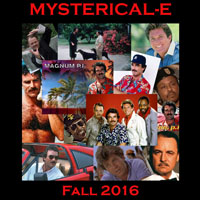Fargo
Fargo (1996), written, produced, directed and edited by Joel and Ethan Coen, claimed after the opening credits to be based on a true story. However that was amended in the introduction to the published screenplay in which Ethan Coen wrote that the story pretends to be true. Doesn’t matter. Beauty is truth, truth beauty as the poet said. The film’s many awards include Oscars for Best Actress and Best Original Screenplay. In addition, in 1998 Fargo was cited as one of the 100 greatest American movies of all time by the American Film Institute.
The opening shot: a desolate snow-covered landscape, approaching headlights that later turn out to be two cars, one towing the other. An almost painfully beautiful score compliments the loneliness of the scene.
Cut to a bar in Fargo, North Dakota. Car salesman Jerry Lundegaard (William H. Macy) enters, looks around and spots the two men he’s come to meet for the first time. Carl (Steve Buscemi) is the saner of the pair, his partner, Gaear (Peter Stormare), is a sociopath of very few words. Jerry’s version of the deal they agreed to over the phone is this: He gives the thugs a new car, they kidnap his wife, her wealthy father pays the ransom that the three of them will split, the thugs return the wife. The thugs’ version of the deal is significantly different.
At this point the viewer knows three things for certain: Jerry, drowning in debt, is a desperate, blundering fool; the kidnappers are amateurs; things will go very badly for everyone concerned. We get a taste of just how badly a while later when a state trooper pulls the kidnappers over for a traffic violation.
Thirty-three minutes into the film the Coens give us someone to root for. Marge Gunderson (Frances McDormand) is a very pregnant, very smart cop married to a sweet man who insists on cooking her breakfast before she trudges off into the pre-dawn cold to investigate the killing of the trooper. McDormand’s performance makes you forget that you’re watching someone act.
Fargo has been called a dark comedy and indeed the one-joke thread that runs through the film based on Wisconsin/Minnesota speech——Ya, hiya, ooh, a big fella, darn tootin’—provides leavening for what might otherwise be an unbearably grim story.
If you’ve seen the film, you’ll remember how it ends. If you haven’t, I won’t give any more away except for McDormand’s speech near the end as she’s hauling one of the bad guys in: “There’s more to life than a little money you know. Don’t you know that? And here you are, and it’s a beautiful day.” Then, sadly, “I just don’t understand.”
Perhaps the gulf between good and evil is the point of this morality tale disguised as a dark comic thriller.
You’ll find Fargo on YouTube: (https://youtube/46VfGU1Ry2Q)
Comments always welcome.




Thanks, Anita. I think I never noticed the score when I saw it (shame on me!) but was delighted to re-listen.